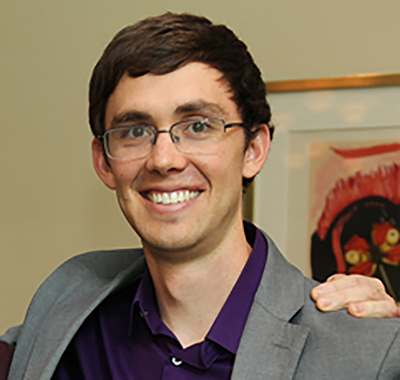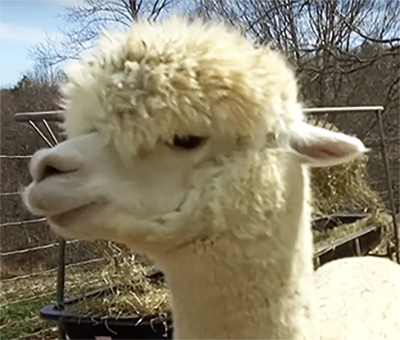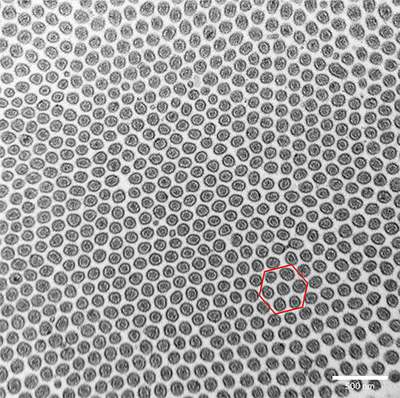Stephen Doster
-

Cathy Pettepher named a 2019 AAMC Award recipient
Congratulations to Cathy Pettepher, Professor of Biochemistry, a 2019 AAMC Award recipient for making significant research contributions to the basic sciences! She will be honored at the annual meeting in Phoenix on Nov 10th. An exceptional educator and innovative leader, Dr. Pettepher led Vanderbilt University School of Medicine’s… Read MoreAug. 20, 2019
-

Gannon named to new faculty development role
Aug. 15, 2019, 11:00 AM by John Howser Maureen Gannon, PhD, professor of Medicine, Molecular Physiology and Biophysics, Cell and Developmental Biology, and Vice Chair for Faculty Development in the Department of Medicine, has been named to the newly created role of Associate Dean for Faculty Development for Vanderbilt… Read MoreAug. 16, 2019
-

Potential second-line melanoma treatment identified
Aug. 15, 2019, 10:52 AM Ann Richmond, PhD, left, Anna Vilgelm, MD, PhD, and colleagues are investigating a possible second-line therapy for melanoma. (photo by John Russell) by Tom Wilemon A study from Vanderbilt-Ingram Cancer Center and the Department of Veterans Affairs led by Anna Vilgelm, MD, PhD, and Ann… Read MoreAug. 16, 2019
-

Protein’s role in inflammation-related cancer studied
Aug. 15, 2019, 10:50 AM by Tom Wilemon It’s well established that chronic inflammation can lead to colon cancer, but the molecular mechanisms behind this association aren’t fully understood. Research at Vanderbilt University Medical Center into the role that the signaling protein SMAD4 plays in this process has received… Read MoreAug. 16, 2019
-

Research excellence honored
Aug. 15, 2019, 10:43 AM (photo by Stephen Doster) Christian Meyer, right, a graduate student in the lab of Vito Quaranta, MD, left, received the 2019 Richard Armstrong Prize for Research Excellence last week during the Vanderbilt Institute of Chemical Biology Student Research Symposium. The prize is named for the… Read MoreAug. 16, 2019
-

Alpacas help researchers who study autism, Alzheimer’s and cancer
Meet the alpacas that are helping researchers who study autism, Alzheimer’s and cancer by Spencer Turney Aug. 13, 2019, 1:00 PM Alpacas aren’t the typical animals that drivers spot as they wind their way through rural Tennessee, but there’s a happy herd of them… Read MoreAug. 16, 2019
-

To fully mature, they’ve gotta move (out)
By Lorena Infante Lara Densely packed microvilli (dark circles) naturally arrange into overlapping hexagons (red). Image of microvilli cross-sections courtesy of Matt Tyska. Modified with permission. New technologies allow us to look at old knowledge with fresh eyes. Scientists have known about microvilli for a long time. Electron microscopy showed… Read MoreAug. 14, 2019
-

Fred Guengerich Receives 2019 Richard Armstrong Mentoring Award
Please join us in congratulating Fred Guengerich, the recipient! An award presentation and “Frontiers in Biochemistry” lecture by Dr. Guengerich will take place Aug 23, 12:00-1:00, 214 Light Hall: “Conformational Changes in Binding of Substrates with Human Cytochrome P450 Enzymes, etc.” Flyer… Read MoreAug. 13, 2019
-

New window on fibrosis
Aug. 8, 2019, 10:00 AM by Bill Snyder DDR1 is a receptor tyrosine kinase (RTK) — a cell surface receptor — that regulates multiple functions including the maintenance of the normal structure of tissues, but which also contributes to pathological conditions including cancer, inflammation and fibrosis. In the kidney, upregulation of… Read MoreAug. 8, 2019
-

Cellular engines of wound repair have distinct roles
Aug. 8, 2019, 9:38 AM Pampee Young, MD, PhD, left, Sarika Saraswati, PhD, and colleagues are studying the different ways fibroblasts function following tissue injury. (photo by Joe Howell) by Leigh MacMillan Following tissue injury, fibroblast cells activate, divide and play key roles in both tissue repair and pathological scarring… Read MoreAug. 8, 2019